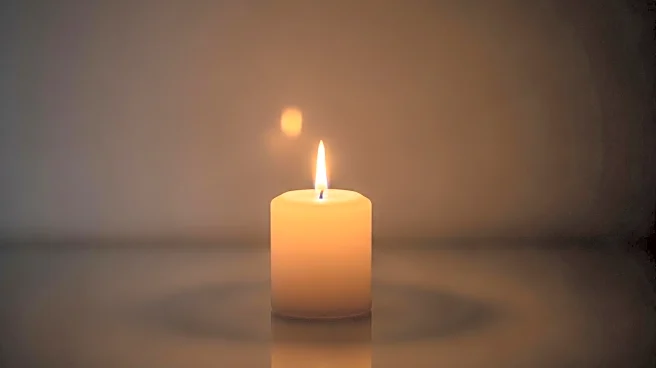What is the story about?
What's Happening?
As the second anniversary of the Oct. 7 terror attacks approaches, Jewish organizations are preparing memorial events amidst complex challenges. The timing coincides with the Sukkot holiday, traditionally a time of joy, complicating the memorial's emotional tone. The ongoing conflict between Israel and Gaza, with 48 hostages still held, adds further tension. Some organizations are opting out of memorials to avoid controversy, while others are planning events that focus on the attacks and the subsequent war. The Israeli government has refrained from organizing a state memorial, leaving nonprofits to crowdfund and plan the main ceremony. Concerns about anti-Israel protests have led to discreet event planning, with some groups offering at-home memorial options.
Why It's Important?
The memorials are significant as they reflect the ongoing impact of the Oct. 7 attacks, the deadliest massacre of Jews since the Holocaust. The events highlight the divisions within the Jewish community regarding how to commemorate the attacks and the subsequent conflict. The memorials also serve as a platform for raising awareness about the hostages and the broader geopolitical situation. The involvement of streaming services like HBO and Paramount+ in documenting the attacks indicates a shift towards using media to engage wider audiences, including those outside traditional Jewish communal life.
What's Next?
Future memorials may become more frequent once the conflict in Gaza ends, allowing for more open discussions about the attacks. The ongoing war complicates the narrative, with some groups choosing to focus solely on the attacks while others include the broader conflict. The potential for protests and vandalism at memorial events remains a concern, prompting organizers to plan discreetly. The Jewish community continues to grapple with how to balance mourning with the celebration of Jewish life, particularly during Sukkot.
Beyond the Headlines
The memorials raise ethical questions about how to balance the commemoration of Jewish victims with the recognition of Palestinian suffering. The events also highlight the role of media in shaping public perception and the importance of storytelling in preserving historical narratives. The involvement of non-Jewish platforms like HBO underscores the potential for broader cultural engagement and dialogue.
















